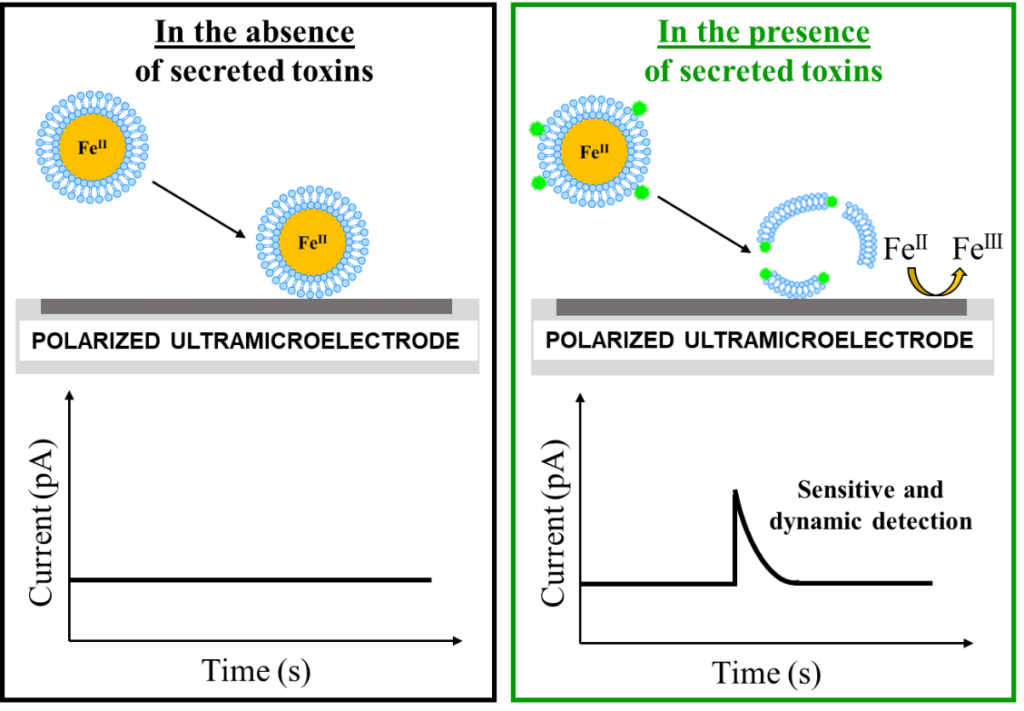
ELIPOX - Electrochemistry of redox liposome nano-impacts for bacterial toxins sensing
ELIPOX is a project led by Estelle Lebègue (coordinator) aiming at detecting, with a high sensibility, the presence of bacterial toxins thanks to the electrochemistry of redox liposome nano-impacts.
In more details
The goal of ELIPOX is to design and develop a highly sensitive and specific electrochemical sensor device for the detection of virulence factors secreted by pathogenic bacteria.
In the ELIPOX project, electrochemistry of single redox liposome nano-impacts will be applied to the detection of toxins from two bacteria responsible for nosocomial infections: the δ-Hemolysin from Staphylococcus aureus and the Rhamnolipid from Pseudomonas aeruginosa.
The electrochemical sensing principle of ELIPOX is based on the weakening of the liposomes lipid membrane upon interaction with destructive bacterial virulence factors which leads upon impact at an ultramicroelectrode to the breakdown of the liposomes and the release/electrolysis of its encapsulated redox probe.
ELIPOX is mainly supported by the coordinator’s previous results (https://doi.org/10.1002/anie.202111416; https://doi.org/10.1021/acs.analchem.9b02809; https://doi.org/10.1021/acs.langmuir.5b03123) on electrochemical single collisions of redox liposomes with the objective to extend this strategy for sensing two target toxins (produced by two pathogenic bacteria), known for interacting with the lipid membrane of liposomes.
The main research hypothesis of ELIPOX is based on the previous results of the coordinator where no current spike was observed in the chronoamperometry curve because the redox liposomes did not break during impact (or collision) onto the ultramicroelectrode surface. In contrast, in the presence of the two target secreted toxins in solution (acting like a surfactant in the lipid membrane), current spikes corresponding to the electrolysis of the encapsulated redox probe released from weakened liposomes are detected.
The main challenge of ELIPOX will be to optimize and adapt the liposomes lipid membrane composition in order to specifically detect the two target toxins and to reach high sensing selectivity, which is of critical importance for biosensor applications.
The expected results of ELIPOX are the most sensitive electrochemical detection toward the target toxins (sub-micromolar) in a short time analysis (30 minutes maximum) with an easy handling and cheap technique.

Synopsis of ELIPOX: Electrochemistry of single redox liposomes nano-impacts for bacterial toxins sensing.
Project team
Arthur LANGLARD
PhD student (2022-2025)
Nanobioelectrochemistry
- Recent advances in single liposome electrochemistry
Smida, Hassiba; Thobie-Gautier, Christine; Boujtita, Mohammed; Lebègue, Estelle
CURRENT OPINION IN ELECTROCHEMISTRY, 2022, 36, 101141,
